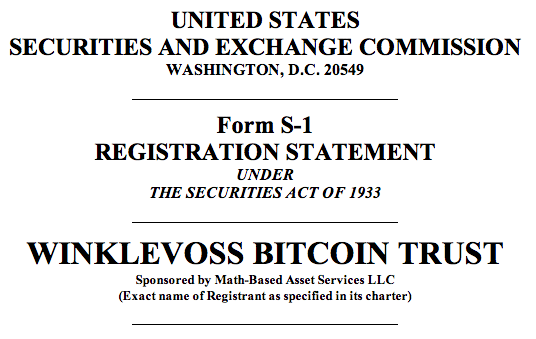Investor Alert Bitcoin and Other Virtual CurrencyRelated Investments
Post on: 16 Март, 2015 No Comment

The SECs Office of Investor Education and Advocacy is issuing this Investor Alert to make investors aware about the potential risks of investments involving Bitcoin and other forms of virtual currency.
The rise of Bitcoin and other virtual and digital currencies creates new concerns for investors. A new product, technology, or innovation such as Bitcoin has the potential to give rise both to frauds and high-risk investment opportunities. Potential investors can be easily enticed with the promise of high returns in a new investment space and also may be less skeptical when assessing something novel, new and cutting-edge.
We previously issued an Investor Alert about the use of Bitcoin in the context of a Ponzi scheme. The Financial Industry Regulatory Authority (FINRA) also recently issued an Investor Alert cautioning investors about the risks of buying and using digital currency such as Bitcoin. In addition, the North American Securities Administrators Association (NASAA) included digital currency on its list of the top 10 threats to investors for 2013.
What is Bitcoin?
Bitcoin has been described as a decentralized, peer-to-peer virtual currency that is used like money it can be exchanged for traditional currencies such as the U.S. dollar, or used to purchase goods or services, usually online. Unlike traditional currencies, Bitcoin operates without central authority or banks and is not backed by any government.
IRS treats Bitcoin as property. The IRS recently issued guidance stating that it will treat virtual currencies, such as Bitcoin, as property for federal tax purposes. As a result, general tax principles that apply to property transactions apply to transactions using virtual currency
If you are thinking about investing in a Bitcoin-related opportunity, here are some things you should consider.
Bitcoin Ponzi scheme. In July 2013, the SEC charged an individual for an alleged Bitcoin-related Ponzi scheme in SEC v. Shavers . The defendant advertised a Bitcoin investment opportunity in an online Bitcoin forum, promising investors up to 7% interest per week and that the invested funds would be used for Bitcoin activities. Instead, the defendant allegedly used bitcoins from new investors to pay existing investors and to pay his personal expenses.
As with any investment, be careful if you spot any of these potential warning signs of investment fraud:
- Guaranteed high investment returns. There is no such thing as guaranteed high investment returns. Be wary of anyone who promises that you will receive a high rate of return on your investment, with little or no risk.
- Unsolicited offers. An unsolicited sales pitch may be part of a fraudulent investment scheme. Exercise extreme caution if you receive an unsolicited communication meaning you didnt ask for it and dont know the sender about an investment opportunity.
- Unlicensed sellers. Federal and state securities laws require investment professionals and their firms who offer and sell investments to be licensed or registered. Many fraudulent investment schemes involve unlicensed individuals or unregistered firms. Check license and registration status by searching the SECs Investment Adviser Public Disclosure (IAPD) website or FINRAs BrokerCheck website.
- No net worth or income requirements. The federal securities laws require securities offerings to be registered with the SEC unless an exemption from registration applies. Most registration exemptions require that investors are accredited investors. Be highly suspicious of private (i.e., unregistered) investment opportunities that do not ask about your net worth or income.
- Sounds too good to be true. If the investment sounds too good to be true, it probably is. Remember that investments providing higher returns typically involve more risk.
- Pressure to buy RIGHT NOW. Fraudsters may try to create a false sense of urgency to get in on the investment. Take your time researching an investment opportunity before handing over your money.
Bitcoin users may be targets for fraudulent or high-risk investment schemes.
Both fraudsters and promoters of high-risk investment schemes may target Bitcoin users. The exchange rate of U.S. dollars to bitcoins has fluctuated dramatically since the first bitcoins were created. As the exchange rate of Bitcoin is significantly higher today, many early adopters of Bitcoin may have experienced an unexpected increase in wealth, making them attractive targets for fraudsters as well as promoters of high-risk investment opportunities.
Fraudsters target any group they think they can convince to trust them. Scam artists may take advantage of Bitcoin users vested interest in the success of Bitcoin to lure these users into Bitcoin-related investment schemes. The fraudsters may be (or pretend to be) Bitcoin users themselves. Similarly, promoters may find Bitcoin users to be a receptive audience for legitimate but high-risk investment opportunities. Fraudsters and promoters may solicit investors through forums and online sites frequented by members of the Bitcoin community.
Bitcoins for oil and gas. The Texas Securities Commissioner recently entered an emergency cease and desist order against a Texas oil and gas exploration company, which claims it is the first company in the industry to accept bitcoins from investors, for intentionally failing to disclose material facts to investors including the nature of the risks associated with the use of Bitcoin to purchase working interests in wells. The company advertised working interests in wells in West Texas, both at a recent Bitcoin conference and through social media and a web page, according to the emergency order.














